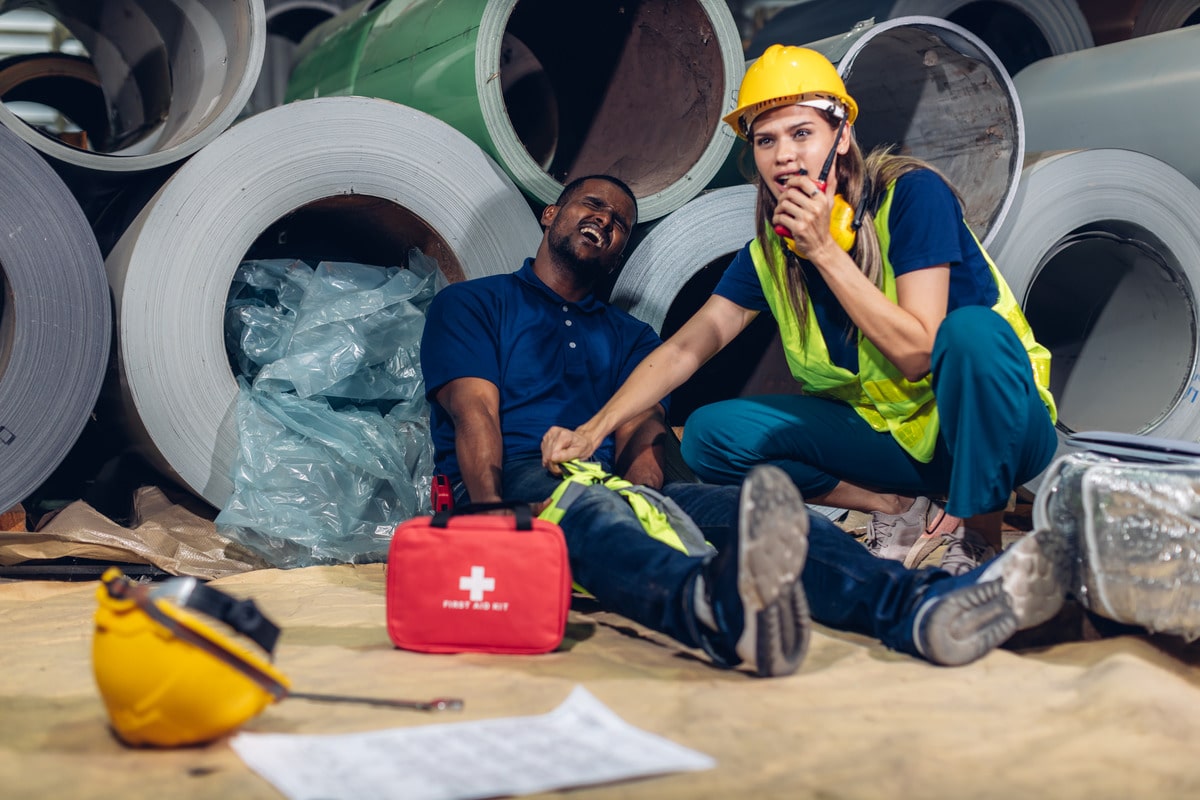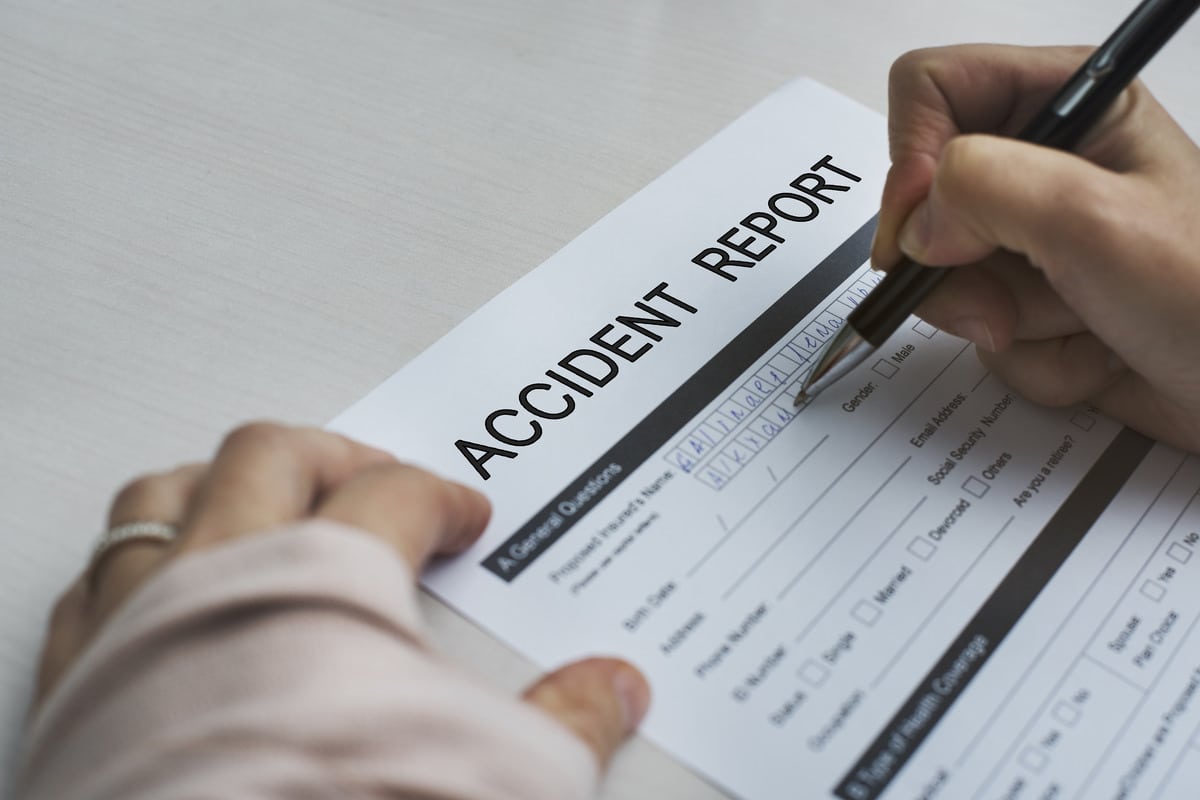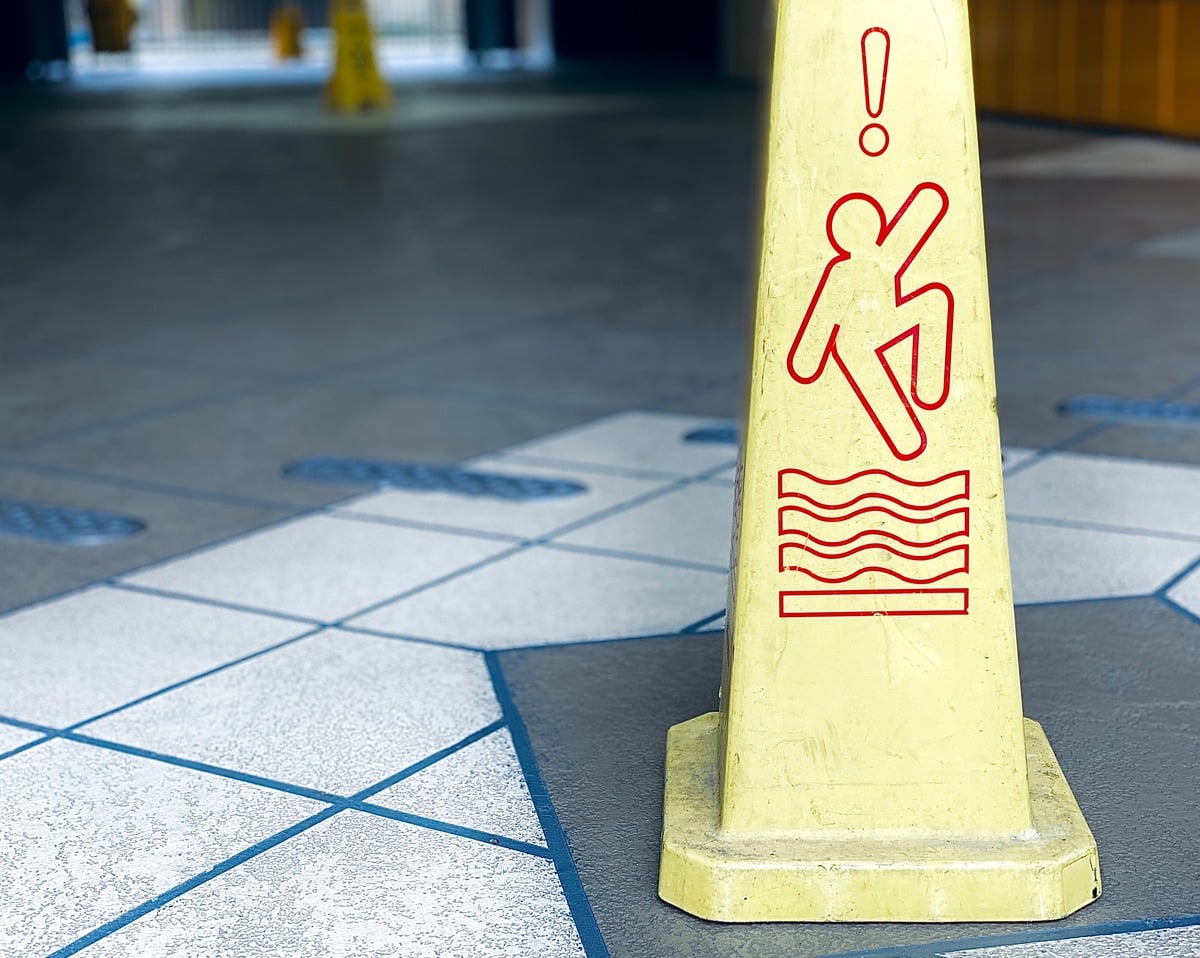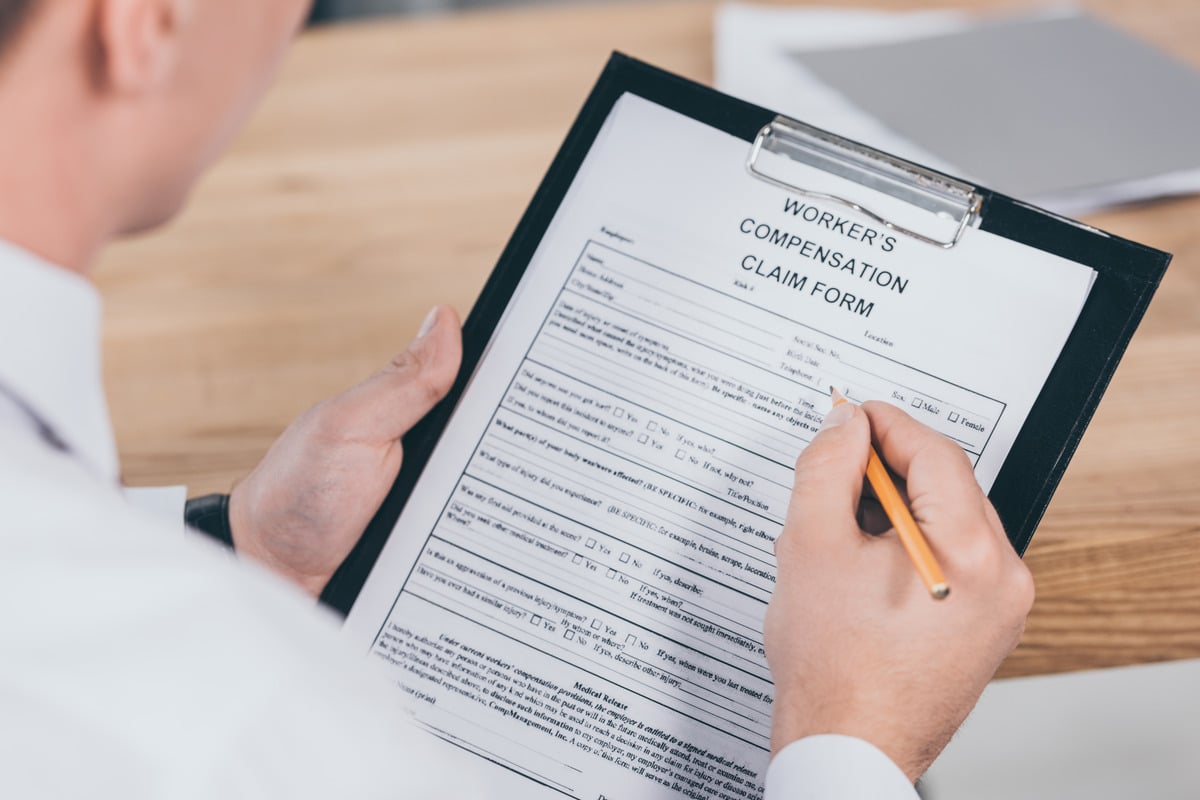Steps to Take After a Construction Accident
Construction sites are inherently risky environments, bustling with activity and heavy machinery. Despite stringent safety protocols, accidents are still common, and the resulting injuries can range from minor cuts to life-altering disabilities. When an accident occurs, knowing exactly what steps to take can protect your health, rights, and financial future. This guide will outline the essential steps after a construction accident, helping you understand how to handle the situation effectively and maximize your chances for fair compensation.
These steps provide a solid foundation if you need help determining where to begin. At Roxell Richards Law Firm, we’re here to help construction accident victims take action to protect themselves and secure their rights.
1. Seek Immediate Medical Attention

Why Medical Care Should Be Your First Priority
When a construction accident occurs, the priority is always health and safety. Even if injuries seem minor or you don’t feel immediate pain, seeking medical attention is crucial. Some injuries, such as internal bleeding, head trauma, or spinal injuries, might not show immediate symptoms but can have serious, lasting effects if untreated.
Beyond the obvious health reasons, visiting a doctor also establishes a record of your injuries, which is critical for any future claim. Documenting your injuries with an official medical evaluation can help validate your case if you seek workers’ compensation or legal action later. It demonstrates that the injuries were severe enough to warrant medical care and provides a baseline for tracking your recovery.
Tip: Save all medical records, including diagnoses, prescriptions, test results, and medical bills. These documents can support your claim and increase the compensation you’re entitled to receive.
2. Report the Accident to Your Supervisor

The Importance of Officially Documenting the Incident
After seeking medical care, immediately notify your supervisor or employer about the accident. Most companies have procedures for reporting workplace accidents, often involving an incident report form. Filing this report is crucial because it serves as the first official documentation of the incident, establishing the accident’s time, place, and details.
Failure to report the incident promptly could lead to complications, such as your employer or insurance company disputing your claim. In some cases, states even require that you report the accident within a specific timeframe to remain eligible for workers’ compensation benefits. Be sure to request a copy of the incident report for your records.
Tip: Keep a written record of the notification, including the date and names of individuals involved, to create additional documentation for your case.
3. Document the Scene of the Accident

Gathering Evidence to Strengthen Your Claim
Documenting the accident scene can significantly strengthen your claim if you’re physically able. Use your phone to take clear, detailed photos of the area, focusing on any hazardous conditions or objects contributing to the accident. Examples might include slippery surfaces, defective equipment, insufficient safety signage, or poor lighting. Also, photograph any injuries you sustained, as visual evidence can often speak louder than words.
Additionally, if there were any witnesses to the accident, get their contact information and ask if they’d be willing to provide a statement. Witness statements can support your account and corroborate the conditions that led to the incident. Write down your version of events soon after the accident, capturing all relevant details while they are fresh in your memory.
Tip: Avoid sharing photos or statements on social media, as insurance companies may monitor your online activity. Keep all documentation confidential and share it only with your attorney or trusted parties involved in the case.
4. File a Workers’ Compensation Claim

Understanding Your Rights Under Workers’ Compensation
In many cases, construction workers are covered by workers’ compensation insurance, which benefits employees injured on the job. Workers’ compensation typically covers medical expenses, a portion of lost wages, rehabilitation costs, and disability benefits, depending on the severity of the injury. Filing a claim ensures that you have access to these benefits.
How to File a Workers’ Compensation Claim
To file a claim, report the accident to your employer, as they will need to notify their insurance carrier. You may need to complete specific forms in some states, so ask your employer about their requirements and deadlines. Be thorough in completing any paperwork detailing your injuries and how the accident occurred.
If your claim is denied or you feel the compensation offered is inadequate, you may have the right to appeal or seek legal representation to help you secure fair benefits.
Tip: Keep copies of all forms and correspondence with your employer and insurance carrier. Having a paper trail can be invaluable if issues arise with your claim.
5. Consider Potential Third-Party Claims

Exploring Compensation Beyond Workers’ Compensation
While workers’ compensation covers many job-related injuries, it may not always be sufficient, especially in severe cases where long-term disability or extensive medical treatment is required. In such cases, you may have grounds for a third-party claim if the accident was caused by someone other than your employer, such as a subcontractor, equipment manufacturer, or property owner.
For instance, if defective equipment caused your injury, you could pursue a claim against the equipment manufacturer for product liability. Similarly, if a third-party contractor’s negligence led to unsafe conditions, you could have grounds for a claim against them. Third-party claims often allow for compensation beyond what workers’ compensation provides, including damages for pain and suffering.
Tip: Consult a lawyer experienced in construction accident cases to explore third-party claims. They can assess the case details and determine if additional compensation is warranted.
6. Consult an Experienced Construction Accident Lawyer
When and Why to Contact a Lawyer
After following the above steps, consulting an attorney can be beneficial, primarily if the accident resulted in severe injuries, long-term disabilities, or disputed claims. A lawyer can help navigate the complexities of construction accident laws, including workers’ compensation, third-party liability, and personal injury claims.
How a Lawyer Can Help
An experienced construction accident attorney will investigate the accident thoroughly, gathering evidence, interviewing witnesses, and reviewing safety protocols. They can negotiate with insurance companies to ensure you receive fair compensation and represent you in court if needed. With a lawyer, you’re less likely to fall victim to common tactics insurers use to reduce or deny claims.
Tip: At Roxell Richards Law Firm, we offer free consultations so you can discuss your case and determine the best course of action without upfront costs. A qualified attorney can protect your rights and secure fair compensation.
7. Follow Up on Medical Care and Rehabilitation

The Role of Continued Medical Care in Your Recovery and Case
Your recovery doesn’t end after the initial visit to the doctor. In many cases, especially for severe injuries, ongoing treatment is necessary. Attending all follow-up appointments and adhering to medical advice are crucial steps in your physical recovery and will demonstrate the legitimacy and severity of your injuries.
Skipping medical appointments or neglecting rehabilitation could weaken your claim, as insurers may argue that your injuries aren’t as serious as reported. Additionally, follow-up care allows your doctor to document your progress and any long-term effects, such as chronic pain or mobility limitations, that may impact your case.
Tip: Keep a journal of your recovery, noting pain levels, limitations, and emotional impact. This record can serve as additional evidence if you seek damages for pain and suffering.
8. Evaluate Settlement Offers Carefully
Knowing When to Settle or Pursue Further Action
After filing a claim, you may receive a settlement offer from the insurance company. While it may be tempting to accept the first offer, especially if you’re facing medical bills or loss of income, these initial offers are often lower than what you’re entitled to receive.
Consult with your lawyer before accepting any settlement. They can assess the offer is fair, considering your medical expenses, lost wages, pain, suffering, and potential future medical costs. If the offer doesn’t reflect the true impact of your injuries, your lawyer can negotiate on your behalf or take the case to court if necessary.
Tip: Never feel pressured to accept an inadequate settlement. At Roxell Richards Law Firm, we fight for our clients’ best interests, securing a settlement that reflects their losses and needs.
Conclusion and Call to Action
If you or a loved one has been injured in a construction accident, don’t face this difficult journey alone. At Roxell Richards Law Firm, we specialize in representing construction accident victims, helping them navigate the legal process, negotiate with insurance companies, and pursue additional compensation where possible.
Roxell Richards Injury Law Firm
6420 Richmond Ave. Ste. #135
Houston, TX z7057
Phone: (713) 974-0388
Fax: (713) 974-0003
Frequently Asked Questions
What should I do right after a construction accident?
Get medical help immediately, even for small injuries. Some injuries, like head trauma, may not show symptoms at first. Getting care also helps if you make a claim later.
How soon should I report my injury?
Tell your supervisor or employer as soon as possible. Quick reporting creates an official record, which is important for insurance and workers’ compensation.
What evidence should I collect?
Take photos or videos of the accident scene, broken equipment, and your injuries. Write down witness names and keep any accident paperwork. This helps prove your case.
Do I need to file a workers’ compensation claim?
Yes. Workers’ comp covers medical bills, lost wages, and rehab costs. Report your injury to start the process and keep copies of all forms.
What is a third-party claim?
If someone other than your employer caused the accident, like a subcontractor or equipment maker, you may have a claim against them. This can give you extra compensation beyond workers’ comp.

